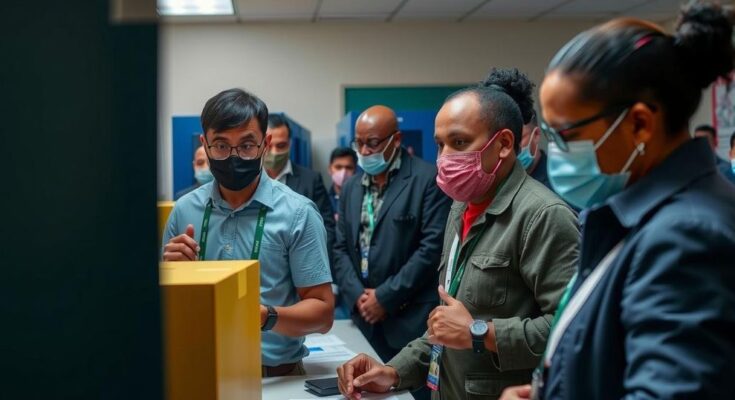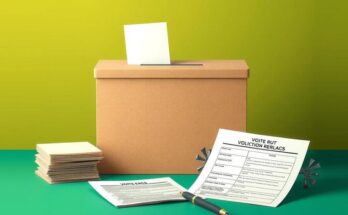As the 2024 elections approach, Republican poll watchers are mobilized in significant numbers, aiming to deter perceived electoral fraud amidst deep distrust in the electoral system. Their presence, while intended to increase transparency, raises concerns about potential intimidation tactics and the spread of misinformation. Election officials fear an escalation in partisan tensions, reflecting an increasingly divided electoral landscape.
The role of poll watchers, traditionally seen as volunteers appointed by major political parties to ensure the integrity of the electoral process, has gained renewed attention ahead of the approaching elections. A significant increase in Republican poll watchers has emerged, driven by a pervasive distrust in the electoral system among Republican voters, particularly in battleground states. Many leaders within the GOP assert that the mere presence of poll watchers will act as a deterrent against potential electoral fraud. Jeff Fuller, a retired Army Special Forces officer and organizer of a GOP poll-watching initiative, remarked, “Their presence alone is kind of a deterrent, because everybody knows somebody is watching.” In response to allegations of previous electoral malfeasance, Republican National Committee Chairman Michael Whatley announced a recruitment effort resulting in over 175,000 registered volunteers for the upcoming elections. However, election officials express concern regarding the potential for intimidation and misinformation, citing previous incidents where poll watchers engaged in disruptive behavior. Among the disconcerting trends noted is the inclination of some poll watchers to instigate claims of fraud without substantiation, which could undermine the election process. Andrew Garber from the Brennan Center for Justice stated, “We all want our elections to be as secure as possible, but over the last couple of elections we’ve seen a growing trend of poll watchers spreading disinformation.” As Republican efforts continue to mobilize, Democrats are also preparing a legal defense team and assembling their own cadre of poll watchers. This partisan polarization raises fears of increased tensions, which may escalate into confrontational situations. Former election officials recount alarming experiences, noting a rise in threats against election staff, which adds an additional layer of pressure to the election administration process. Meanwhile, Fuller stated his condemnation of violence while asserting that a vigilant presence is necessary to restore trust in elections. With the backdrop of the 2020 election still looming large in public consciousness, many in the Republican base maintain a belief in unsubstantiated claims of widespread fraud, which manifests in an active desire to oversee the electoral process more rigorously. This situation highlights the ongoing challenges faced by election officials who strive to ensure orderly and fair elections amidst escalating partisan tensions.
In recent years, particularly since the tumultuous 2020 presidential election, partisan tensions surrounding the electoral process in the United States have intensified. The recruitment of poll watchers by political parties has become a focal point of these tensions, particularly among Republicans, who have aimed to ensure what they perceive as election integrity in light of unproven claims of widespread fraud. Poll watchers serve the purpose of providing oversight during elections, but the behavior and motivations of some watchers have raised alarms among election officials about potential intimidation and misinformation tactics. As the 2024 elections approach, both major political parties are gearing up for battle, reflecting a divided public and a fragile trust in the electoral process.
The looming presence of partisan poll watchers illustrates the heightened tensions surrounding the electoral process in America, particularly among Republican voters who harbor concerns about election integrity. While these watchers intend to deter election fraud, past behaviors and the risk of misinformation introduce significant challenges for election officials. As both parties prepare for the upcoming elections, the fundamental need for transparent and fair electoral processes remains at the forefront, emphasizing the critical balance between oversight and intimidation in a deeply polarized political climate.
Original Source: abcnews.go.com




